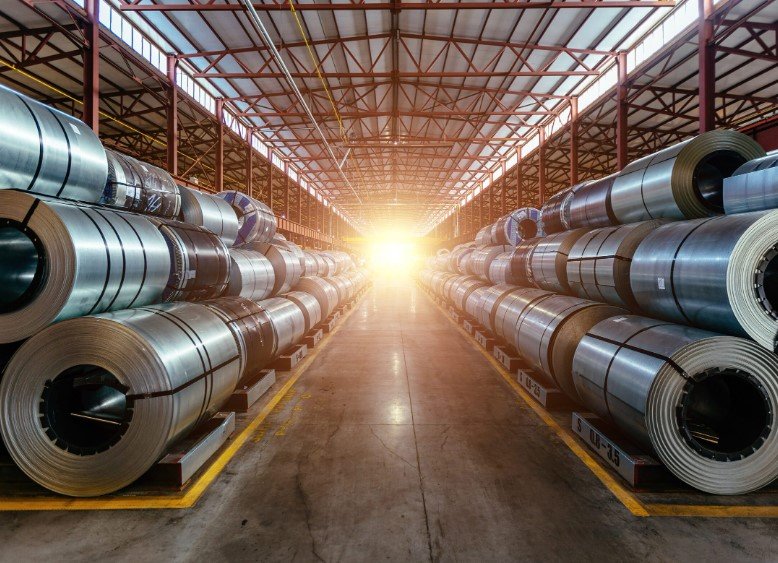Egypt has rolled out temporary safeguard tariffs on key steel products to shield its local industry from cheap foreign imports. Starting September 14, 2025, the move by Minister of Investment and Foreign Trade Hassan El-Khatib aims to counter unfair trade practices and boost domestic production amid rising global competition.
Why Egypt Chose These Tariffs Now
Local steel makers have faced tough times due to a flood of low-cost imports, which spiked in early 2025. Official data shows Egypt imported hot-rolled steel worth about $260 million in the first half of the year alone, putting pressure on homegrown firms.
This decision follows a World Trade Organization notification in April 2025, where Egypt started an investigation into surging hot-rolled flat steel imports. The probe revealed serious harm to the industry from unexpected import jumps, driven by lower global prices.
Experts say this aligns with Egypt’s push for economic stability, especially after rebar market fluctuations in the first half of 2025. Production and sales dipped due to local economic strains, making protection measures urgent.
The tariffs come at a time when global steel trade is tense, with similar actions in places like India and Canada to guard their markets.

Details of the New Tariffs
The safeguards last 200 days and cover products like hot-rolled coils, cold-rolled coils, galvanized sheets, colored sheets, and billets. Rates vary by item, based on CIF values with minimum fees per ton.
Here’s a breakdown of the tariffs:
| Product | Tariff Rate (%) | Minimum Fee (EGP per ton) |
|---|---|---|
| Hot-rolled coils | 13.6 | 3,673 |
| Cold-rolled coils | 11.11 | 4,152 |
| Galvanized sheets | 12.16 | 4,812 |
| Colored sheets | 4.94 | 2,584 |
| Billets | 16.2 | 4,613 |
These rates aim to make imports less attractive while giving local producers breathing room. The Ministry of Industry held meetings in recent weeks to discuss these steps, responding to complaints from manufacturers.
Impact on Local Steel Industry
Egypt’s steel sector, a key player in construction and manufacturing, stands to gain from reduced import competition. Major firms like Ezz Steel have reported challenges from cheap foreign goods, which undercut prices and squeezed margins.
In the first half of 2025, rebar prices in Egypt stayed stable but ranged from 31,500 to 38,200 EGP per ton, showing market caution. Exports to the EU dropped 37% in the same period last year, highlighting the need for stronger domestic focus.
Analysts predict these tariffs could encourage investments in capacity expansion. For instance, plans for billet self-sufficiency are gaining traction, with potential boosts to jobs and output.
However, some worry about higher costs for builders and consumers if local supply lags. The government insists the measures are temporary and will be reviewed based on industry feedback.
This isn’t Egypt’s first rodeo, as past tariffs in 2014 and 2017 targeted rebar from countries like China and Turkey to tackle similar issues.
Global Context and Trade Reactions
Worldwide, steel trade barriers are on the rise as nations protect jobs and industries. The U.S. and EU have ongoing measures, while India’s recent 12% duty on flat products echoes Egypt’s approach.
Social media buzz on platforms like X shows mixed views, with some praising the protection for local jobs and others warning of trade wars. Posts from industry watchers highlight Egypt’s push for long-term self-reliance in steel.
The WTO will monitor these safeguards to ensure they follow global rules. Egypt’s move could spark responses from exporting nations, but officials say it’s vital for fair play.
What Happens Next for Egypt’s Economy
These tariffs tie into broader reforms, including efforts to cut reliance on imports and grow manufacturing. With Egypt’s economy eyeing recovery post-pandemic, steel protection could support infrastructure projects and exports.
Looking ahead, the 200-day window allows for a full investigation, possibly leading to permanent changes. Stakeholders, including importers and users, can submit views during this time.
In summary, Egypt’s safeguard tariffs mark a bold step to revive its steel sector, balancing protection with global trade norms. Readers, what do you think about these measures? Share your thoughts in the comments and pass this article along to spark discussion.
